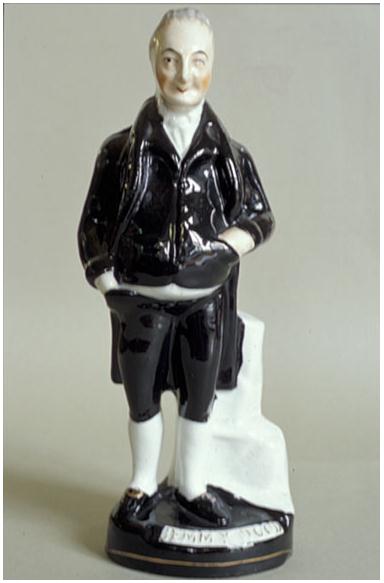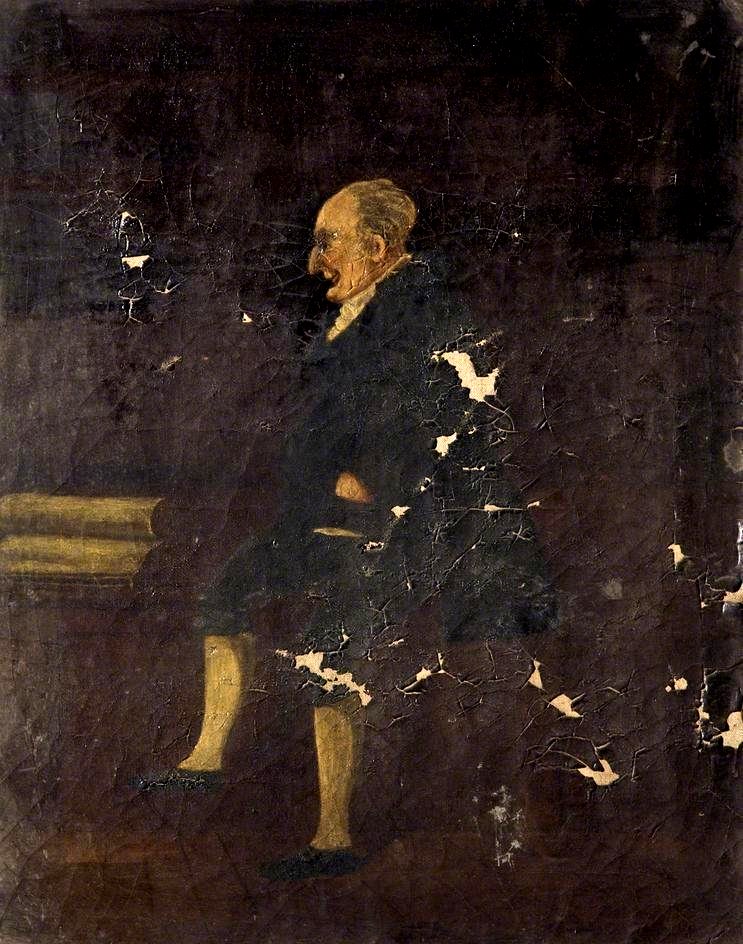Jemmy Wood on:
[Wikipedia]
[Google]
[Amazon]



 James (Jemmy) Wood (7 October 1756 – 20 April 1836) was the owner of the
James (Jemmy) Wood (7 October 1756 – 20 April 1836) was the owner of the
corseandstaunton.org.uk, 2005. Retrieved 1 July 2011. in Westgate Street, Gloucester and baptised at St Michael's Church on 19 October 1756. He was the third child and only son of Richard and Elizabeth Wood and he attended either
by Irvine Grey in ''Transactions of the Bristol and Gloucestershire Archaeological Society'', Vol. 90, 1971, pp.158–177. The bank was taken over by the ''County of Gloucestershire Banking Company'' in 1838, which eventually became part of ''Lloyds Bank'' in 1897. Wood also owned an undertaking business and extensive land in and around the City of Gloucester.
Obituary.
The Gentleman's Magazine, Vol. 12, 1839, p.323.



 James (Jemmy) Wood (7 October 1756 – 20 April 1836) was the owner of the
James (Jemmy) Wood (7 October 1756 – 20 April 1836) was the owner of the Gloucester Old Bank
The Gloucester Old Bank was a British bank that operated between 1716 and 1838. It was founded in 1716 by James Wood.Heighway, Carolyn. ''Gloucester: a history and guide.'' Gloucester: Alan Sutton Publishing Limited, 1985, p.157. The bank was ...
who became nationally known as "The Gloucester Miser". His wealth of around £900,000 was stated at the time to have made him "the richest commoner in His Majesty's dominions".
Early life
Wood was born on 7 October 1756James Wood's Time Line.corseandstaunton.org.uk, 2005. Retrieved 1 July 2011. in Westgate Street, Gloucester and baptised at St Michael's Church on 19 October 1756. He was the third child and only son of Richard and Elizabeth Wood and he attended either
Sir Thomas Rich's School
Sir Thomas Rich's School is a grammar school with academy status for boys (aged 11–18) and girls (aged 16–18, in the sixth form) in Longlevens, Gloucester, England, locally known as "Tommies". It was founded in 1666 by Sir Thomas Rich, 1st ...
or The King's School.
Gloucester Old Bank
Wood inherited the bank from his grandfather who had founded it in 1716. Heighway, Carolyn. ''Gloucester: a history and guide.'' Gloucester: Alan Sutton Publishing Limited, 1985, p.157. The bank was said to have been one of the oldest private banks in Britain, having survived the financial consequences of theNapoleonic Wars
The Napoleonic Wars (1803–1815) were a series of major global conflicts pitting the French Empire and its allies, led by Napoleon I, against a fluctuating array of European states formed into various coalitions. It produced a period of Fren ...
when many other banks went out of business. It operated from Wood's drapery shop in Westgate Street; his practice was to offer no interest on deposits of less than one year. The whole bank was believed to have consisted of just Wood and two clerks. On the counter were nailed counterfeit coins as a warning to customers not to try and pass them off on the bank."Jemmy Wood's Journal"by Irvine Grey in ''Transactions of the Bristol and Gloucestershire Archaeological Society'', Vol. 90, 1971, pp.158–177. The bank was taken over by the ''County of Gloucestershire Banking Company'' in 1838, which eventually became part of ''Lloyds Bank'' in 1897. Wood also owned an undertaking business and extensive land in and around the City of Gloucester.
Gloucester City
Wood never appeared in lists of city benefactors and despite serving as City Sheriff for 1811 and 1813, and as an Alderman from 1820 until his death, it is thought that he never became Mayor because the expense of the job was too great for him to bear. He was not averse to spending other people's money however. In 1818, 47 people dined at the city's expense at a dinner given for the Duke of Gloucester at which they ate a turtle weighing 150 lbs given to the city by Lord Howard.Smith, Betty. ''Tales of Old Gloucestershire''. Newbury: Countryside Books, 1987, pp. 15–19.In fiction
Charles Dickens
Charles John Huffam Dickens (; 7 February 1812 – 9 June 1870) was an English writer and social critic. He created some of the world's best-known fictional characters and is regarded by many as the greatest novelist of the Victorian e ...
may have been inspired by the stories about the Gloucester Miser to create the character of Ebenezer Scrooge
Ebenezer Scrooge () is the protagonist of Charles Dickens's 1843 novella ''A Christmas Carol''. At the beginning of the novella, Scrooge is a cold-hearted miser who despises Christmas. The tale of his redemption by three spirits (the Ghost of ...
in ''A Christmas Carol
''A Christmas Carol. In Prose. Being a Ghost Story of Christmas'', commonly known as ''A Christmas Carol'', is a novella by Charles Dickens, first published in London by Chapman & Hall in 1843 and illustrated by John Leech. ''A Christmas C ...
''. A character by the name of ''Dismal Jemmy'' appears in '' The Pickwick Papers'' and ''Jemmy Wood of Gloucester'' is mentioned in ''Our Mutual Friend
''Our Mutual Friend'', written in 1864–1865, is the last novel completed by Charles Dickens and is one of his most sophisticated works, combining savage satire with social analysis. It centres on, in the words of critic J. Hillis Miller, quo ...
''. It has also been speculated that the court case of ''Jarndyce v Jarndyce
''Jarndyce and Jarndyce'' (or ''Jarndyce v Jarndyce'') is a fictional probate case in ''Bleak House'' (1852–53) by Charles Dickens, progressing in the English Court of Chancery. The case is a central plot device in the novel and has become a ...
'' in '' Bleak House'' may have been based on the case that arose following irregularities in Wood's will, although the court system of the time was so slow and expensive that there are a number of other possible cases on which ''Jarndyce'' could just as easily have been based.
Death
Wood died in 1836 and was buried in St Mary de Crypt Church in Gloucester where there is a gravestone to his memory in the chancel. The crowd at his funeral reportedly "...evinced a levity of demeanor inconsistent with the solemnity of the occasion" and his coffin was said to have been stoned. Problems over hiswill
Will may refer to:
Common meanings
* Will and testament, instructions for the disposition of one's property after death
* Will (philosophy), or willpower
* Will (sociology)
* Will, volition (psychology)
* Will, a modal verb - see Shall and will
...
led to a long court case that soaked up much of the funds in the estate. Wood never married and had no children. He left around £900,000 to be shared equally between Sir Matthew Wood, John Chadborn (Solicitor), Jacob Osborne and John S. Surman, who were also his executors. A damaged codicil was found that left money to the City of Gloucester and to other beneficiaries and it was wrangling over the authenticity of the codicil that caused the settlement of the estate to be delayed. Chadborn hanged himself in 1839 and the obituary notice in ''The Gentleman's Magazine'' noted that since Wood's death, Chadborn's attention had "been almost wholly engrossed with the proceedings consequent upon the disputed validity of the will".The Gentleman's Magazine, Vol. 12, 1839, p.323.
See also
*George Worrall Counsel
George Worrall Counsel (c. July 1758 – 19 January 1843) was a Gloucester solicitor, antiquarian, alderman, and property developer.
He was first apprenticed to an ironmonger but left that to study law and qualified as a solicitor and proctor. ...
References
Further reading
*Savory, Charles H. ''Life and Anecdotes of Jemmy Wood, the eccentric banker, merchant and draper, of Gloucester. Also an account of the remarkable trial with reference to his will.''. London & Cirencester: Kent & Co., 1883. {{DEFAULTSORT:Wood, Jemmy 1756 births 1836 deaths British bankers Misers People from Gloucester Westgate, Gloucester Aldermen of Gloucester